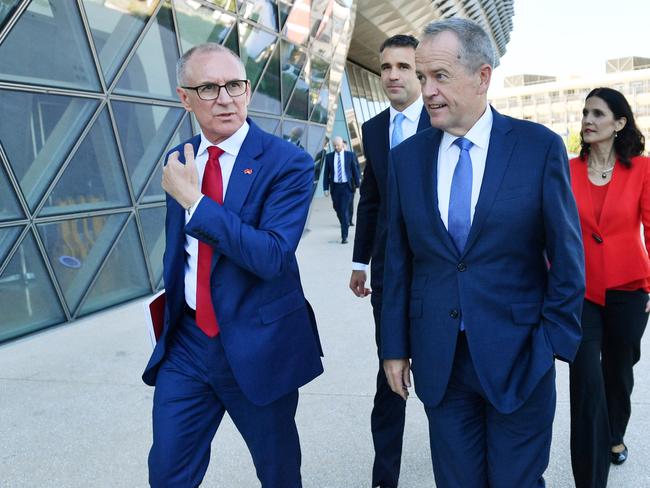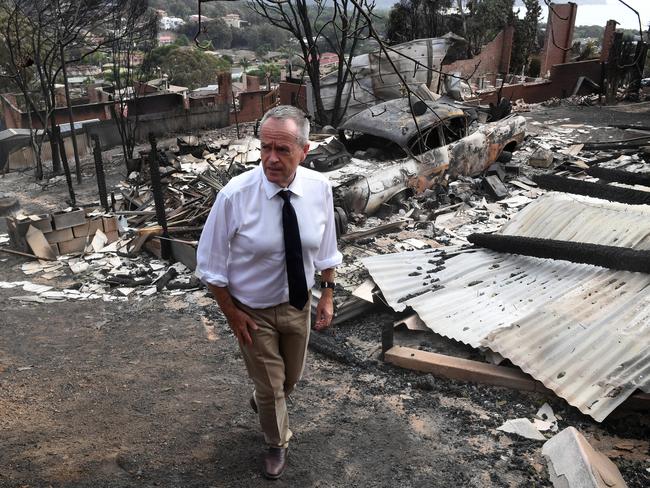Bill Shorten’s pensioner tax plan: Union slush funds and Labor-aligned groups exempt
UNION slush funds and Labor-aligned campaign groups have been given a secret exemption from Bill Shorten’s plans to axe investment income cash refunds.
NSW
Don't miss out on the headlines from NSW. Followed categories will be added to My News.
CFMEU slush funds and Labor-aligned campaign groups have been given secret exemption from Bill Shorten’s plan to axe investment income cash refunds.
The Daily Telegraph can reveal several bodies set up by the CFMEU and other bodies that support Labor would be able to continue receiving tax refunds for dividends, while 230,000 pensioners across the country have money taken from them.
Prime Minister Malcolm Turnbull said that Opposition Leader Mr Shorten was “robbing pensioners” in a “cynical, unconscionable and unfair raid on the savings of older Australians”.
Australian Taxation Office figures reveal 84,569 NSW pensioners would be affected compared with 60,000 in Victoria, 42,000 in Queensland, 21,000 in Western Australia, 18,000 in South Australia and fewer than 10,000 in Tasmania, ACT and Northern Territory.

But Labor’s proposal spares groups that support the party’s political agenda, including the Union Education Foundation and Construction Industry Drug and Alcohol Foundation — set up by the CFMEU — Construction Charitable Works, Mates in Construction, Australia Institute and McKell Institute.
These groups, along with other registered charities which currently have access to the tax refunds, are exempt from what Mr Turnbull has dubbed Mr Shorten’s “retiree tax”, which only applies to individuals and super funds. The Union Education Foundation, which had received $11 million in Labor government grants, teaches union delegates how to “campaign” and increase membership.
In 2015, the UEF — of which new Labor MP Ged Kearney has been a director — had more than $450,000 in investment income. It is income tax exempt, meaning any franked dividends would have allowed the foundation to claim refundable tax credits.

The Construction Industry Drug and Alcohol Foundation is a registered charity set up by the CFMEU to receive donations from employers — a large portion of which was siphoned to the CFMEU, according to findings from the union royal commission.
Similarly, the Construction Charitable Works body, also set up by the CFMEU, would be exempt. So too would charity Mates in Construction and the Australia Institute, which has a history of supporting Labor policies. Mr Shorten has oft quoted its research.
Liberal-aligned groups like the Institute of Public Affairs and Centre for Independent Studies would also be exempt along with charities like UNICEF, World Vision and the RSPCA. The Centre for Entrepreneurial Research and Innovation would also be exempt.
